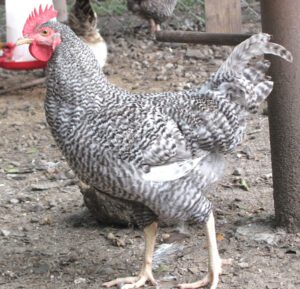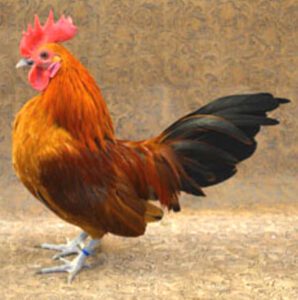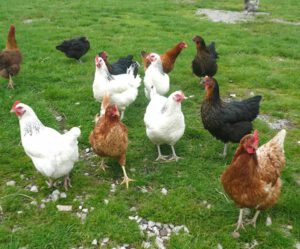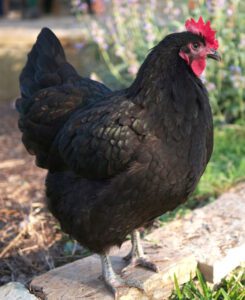Cochin chicken is an Asiatic domestic chicken breed. They were originated from China in the early 1850s. And Cochin chickens are popular and known throughout the world for being big friendly balls of fluff and feathers.
As a very distinctive chicken breed, Cochin chickens became very popular among the poultry lovers in the English-speaking world. This chicken breed is among one of the largest breed available today.
Cochin chickens were recognized by the American Poultry Association in 1874. We have discussed the characteristics, behavior and full breed profile below.
Physical Characteristics of Cochin Chicken
Cochin chickens are among the largest domestic chicken breed. The most distinctive feature of the Cochin is the excessive plumage that covers leg and foot. They have yellow colored skin beneath the feathers. They lay medium size light brown colored eggs.
They lay many eggs, but usually not for extended periods of time. Cochin chickens come with a wide variety of colors. Black, buff, blue, golden laced, partridge, red, splash, silver laced and white are the color varieties of Cochin chickens. They can be frizzled, with the feathers curling outwards.
Cochin hens are well known as very good mothers. Even as foster mothers for other chicken breeds. Cochin chickens are quiet in nature and very friendly chickens. They are also very good as pet.
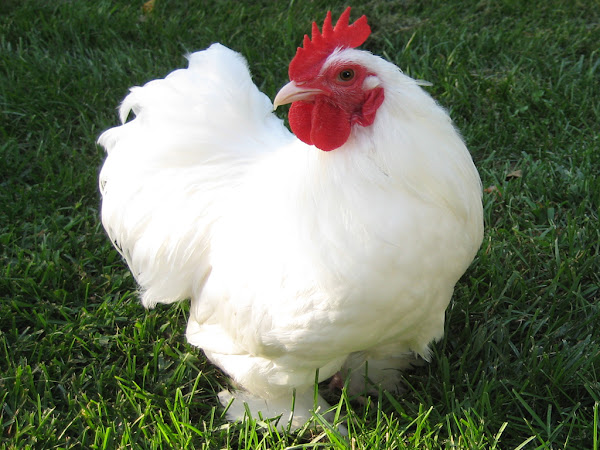
On an average, a male Cochin chicken can weights about 5kg and a female about 4 kg. They have single comb and there is also a bantam version available of this chicken breed.
Behavior/Temperament
Cochin chickens are comparatively lazy than other chicken breeds. Their lazy lifestyle and rounded appearance affect their health. And they tend to suffer from metabolism and heart problems.
They like to be kept on short grass and usually not venture onto longer vegetation. Because longer vegetation can damage the feathers on their feet. They take very little room compared to their large body size.
They usually like to be contained with fencing but you should avoid putting them onto cold. A 2-3 feet fence will be sufficient enough for keeping them contained, because they do not fly. But you also have to be concerned about the predators.
Cochin chickens are very friendly, calm and are of maternal nature. That’s why they make excellent broodies. They are not among the good layers. They lay medium size eggs but not many. It takes 22 days to hatch their eggs and chicks are pretty strong.
Cochin chickens tend to be submissive when kept with other aggressive chicken breeds. They require good quality feed and take long time to be mature. Usually, they become mature in two years. They are also very good as pets and have an average lifespan of 8-10 years.
| Breed Name | Cochin |
| Other Name | None |
| Breed Purpose | Ornamental |
| Breed Temperament | Calm, Friendly, Bears confinement well, Easily handled, Quite, Hens are very good mothers |
| Breed Size | Large (4 – 5 kg) |
| Broodiness | Frequent |
| Comb | Single |
| Climate Tolerance | Cold |
| Egg Color | Light Brown |
| Egg Size | Medium |
| Egg Productivity | Low |
| Feathered Legs | Yes |
| Rarity | Common |
| Varieties | Black, Buff, Blue, Golden laced, Partridge, Red, Splash, Silver laced and White |
The Good
- Affectionate
- Very beautiful
- Calm
- Cuddly
- Dedicated
- Friendly
- Fluffy
- Good mother
- Great pet
- Submissive when kept with other aggressive breeds
The Bad
- Lazy chicken breed
- Not good layers
- Not suitable for hot climates
Is Cochin Chicken Good for You?
Yes, Cochin chickens are good for you if you…….
- Want to raise some very beautiful chickens.
- Are willing to have some calm and friendly chickens.
- Want to keep some broody hens which are also great mothers.
- Want to have some beautiful and friendly chickens as pets.
- Are thinking about adding some chickens to your existing flock.
- Live somewhere with cold climate.
- Want to enhance the beauty of your backyard.
